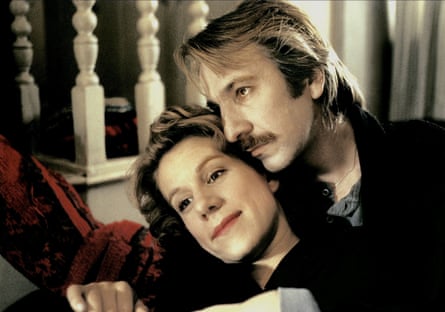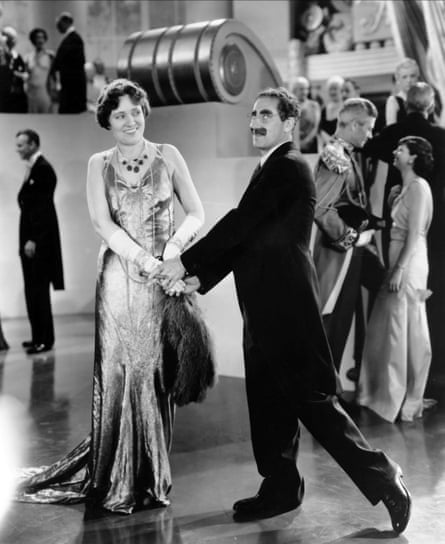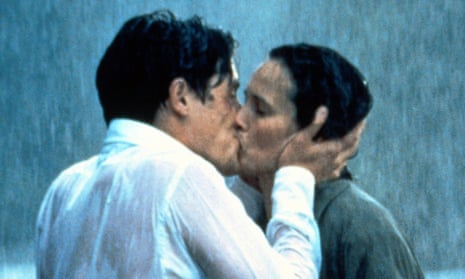In her recent memoir The Argonauts, Maggie Nelson writes of sending her new lover, after she has first declared her love for him, a passage from Roland Barthes’s autobiography. In this passage Barthes states that the one who says “I love you” is like “the Argonaut renewing his ship during its voyage without changing its name”. In the course of their epic journey, the Argonauts gradually replaced every single plank and nail of the Argo so it became “an object with no other cause than its name”. The meaning of “I love you”, Barthes reflects, must be constantly restated too, as the job of both love and language is “to give to one and the same phrase inflections which will be forever new”. Nelson thinks this passage romantic; her lover reads it as “a possible retraction”.
For such a simple sentence, three monosyllables arranged in the lock-step syntax of subject, verb and object, “I love you” can fall on the ears of its chosen recipient in unpredictable ways. These words capture both our need for love and our reliance on language, and our often fraught attempts to marry these two things up. In his classic book On Aggression, the Austrian ethologist Konrad Lorenz claims that, among diving ducks, inciting – ritualised sexual display by the female of mating pairs – has the same meaning as the human “I love you”. Well, perhaps. Lorenz was one of the greatest of all animal behaviourists and if anyone could speak fluent duck it was him. But ducks don’t worry about when and whether to say “I love you”, or what reaction these words will produce in the listener. For the human animal, these words are not just the expression of a physiological-biological drive, but something far more knotty and awkward.
The words “I love you” are especially hard for any writer of poetry, song or story to navigate because they are a worn-out phrase that is still meant to come from the heart. They have to say something unique and precise with words that are commonplace and second-hand – or, as the euphemism goes, “pre-loved”. The American poet Mark Doty has written that sentimentality works by replacing the particularity of individual feeling with “the dulling, ‘universal’ certainty of platitude”. If that is so, then what could be more sentimental than “I love you”, words that must have been said by billions of people since the larynxes of our ape-like ancestors descended enough for them to turn breath into speech?
One answer to this problem is simply to surrender to the triteness of the phrase. Natasha Bedingfield’s 2004 song “These Words” turns the bug of banality into a feature: “Waste bin full of paper / Clever rhymes, see ya later / These words are my own / From my heart flown / I love you I love you I love you I love you!” A commonly dispensed piece of writing advice is to avoid the prefabricated word strings we call cliches. But cliches can give a writer something to riff around and kick against. In Julian Barnes’s A History of the World in 10½ Chapters, the half-chapter of the title is a meditation by this most scrupulous of writers on those ready-made words, “I love you”. In it he shifts between repeating this “unadorned impregnable sentence” like a mantra – “I love you … Je t’aime. Ti amo (with soda)” – and recognising that it is impossible to make the pronouns and verbs wholly your own. For language does not belong to one person; it belongs to everyone and no one. We are speaking the words but the words are also speaking us. “We’d better put these words on a high shelf; in a square box behind glass which we have to break with our elbow,” he concludes. “Keep this biddable phrase for whispering into a nape from which the absent hair has just been swept.”
In his book Why Do Women Write More Letters Than They Post? the psychoanalyst Darian Leader wonders why “I love you”, unlike other sentences, has to be reiterated endlessly to seem true. The problem is that we are looking for some unconditional, absolute proof that love exists, but, Leader writes, love “cannot be spoken once and for all”. So people feel the need to resort to ever-more extravagant comparisons, beginning “I love you as much as” or “I love you more than”. But language is not equipped to address this question of how much we love. If the ideal of love is that it is boundless and endless, then no linguistic comparison will ever serve. If you try to augment “I love you”, you risk sounding desperate or running aground on self-defeating hyperbole.
Shakespeare gets round this impasse by modifying the three words in a way that suggests the inadequacy of language at conveying the depth of love. “I love you more than words can wield the matter,” says Goneril to King Lear. “I love you with so much of my heart that none is left to protest,” says Beatrice to Benedick in Much Ado About Nothing. Pablo Neruda pulls it off in his 100 Love Sonnets by turning the words into joyous anaphora: “I love you without knowing how, nor when, nor from where, / I love you directly without problems or pride: / I love you this way because I know no other way to love.” But that kind of embellishment can easily seem overwrought. A safer bet is to come up with more surreal analogies, as the American poet Jessica Greenbaum does in her brilliantly titled “I love you more than all the windows in New York City”.
In the film Truly, Madly, Deeply, Nina (Juliet Stevenson) and her lover Jamie (Alan Rickman) play a word game in which they each repeat and add to the usual words. “I really, truly, madly, deeply love you,” he says. “I really, truly, madly, deeply, passionately love you,” she says, and they try to out-adverb each other until he loses by forgetting to say “deeply”. The point of the game is to show that love cannot be quantified in this way. Jamie is a ghost and he can only really prove his love by making himself such an irritant around Nina’s flat that she can finally let go of her grief and love someone else. The moral of the film, despite its gushing title, is that words are not enough and that, as Søren Kierkegaard put it, “love is known by its fruits”.

In the days when characters in plays and films suffered from what Terence Rattigan called “le vice anglais … our refusal to admit our emotions”, you could extract quite a bit of narrative tension out of someone struggling to say “I love you”. In Rattigan’s own plays, the words tend to be barked out like a curse or wheedled out of people, as in this exchange from French Without Tears: “I love you.” “I suppose this is true.” “You know damn well it is.” “Say it, darling.” “Say what?” “Say you love me.” “Must I?” “Oh, this is hell!” Or this one from While the Sun Shines: “You’re a beast, but I love you.” “Do you really?” “Oh, I don’t know about ‘really’.” “I love you” used to be the hard-won revelation that came at the end of a story or a fictional life. On 22 September 1955, when the BBC tried to rain on the opening night of ITV with the death of Grace Archer, 11 million listeners heard her being struck by a falling beam as she tried to rescue her horses from a fire in the stables. In the ambulance, in her husband’s arms, she rasped out with her last breath the words: “Phil … I love you, Phil.”
In the sub-Rattigan romantic melodramas that used to tour with the old theatre repertory companies, “I love you” was the killer phrase, uttered only as a last resort by women dabbing their eyes with the corners of handkerchiefs, or men gripping their arms and blurting out: “Can’t you see what I’m trying to tell you? I love you!” Or perhaps this stock phrase of breathless ardour was only ever deployed ironically: the only reference I can find is from the Marx Brothers’ film Duck Soup, in which Groucho says it at the moment he discovers that the woman he is talking to is a rich widow. Certainly, no one would say these words straight today, although Alistair McGowan has said that he finally nailed his Tony Blair impression when he grasped that Blair’s moist-eyed, grab-you-by-the-shoulders urgency was best conveyed if you imagined that the next thing he was going to say was “Can’t you see what I’m trying to tell you? I love you!”.

The most recent modern rendering of this very British difficulty with getting the words out is probably Four Weddings and a Funeral, in which Charles (Hugh Grant) can only manage it by running after Carrie (Andie McDowell) on London’s South Bank and saying, “Er, in the words of David Cassidy … while he was still with the Partridge Family … er, I think I love you.” Charles’s inability to say “I love you” without scare quotes is just the most debilitating symptom of his general problem with words, which he tends to deploy in the service of embarrassing faux pas or creative reworkings of “Fuck”. His deaf brother David has to intervene on his behalf at his wedding to the wrong woman, allowing him to finally speak of his love for Carrie through sign language.
“I love you” is hard to say because, as Barthes writes, it is always in some sense a demand, and so the only addressee guaranteed not to be embarrassed or discomforted by it is a parent, or God. There is only one correct reply to “I love you”: not even “Me too” is good enough. In the 1991 film Hear My Song, the hero, Micky O’Neill, loses his girlfriend, Nancy, when he answers her “I love you” with “Vice versa” – which will clearly not do at all. Barthes writes in his book A Lover’s Discourse that “I love you” is an anti-language, a phrase “without nuance”, stripped of the usual “armoury of meaning”. Words are meant to have some give in them, to be open to interpretation and dialogue by the hearer or reader. But “I love you” permits only one meaning and one answer. One says it, he writes, only to hear it said right back in the exact same form, with “no syntactical subterfuge, no variation”.
Back in 1985, in those intellectually earnest days when bands thought nothing of namechecking French cultural theorists, David Freeman and Joe Hughes formed a new wave duo named after a line from A Lover’s Discourse: the Lover Speaks. Their debut single’s title and theme were also taken from the book, in which Barthes laments the end of an affair: “Isn’t the most sensitive point of this mourning the fact that I must lose a language – the amorous language? No more ‘I love you’s.” In the song, Freeman sounds both sad and relieved that he is no longer a “lunatic” in love, and explores this liberation from both love and its attendant romantic idiom in a series of abstract, passive phrases: “Language is leaving me in silence … Changes are shifting me outside the word.”
This gravely beautiful and unblinkingly rational song peaked at number 58 in the charts and would now be forgotten had Annie Lennox not resurrected it and turned it into the earworm of 1995. The first time I heard her version on the radio, it was as if the post-structuralist theory I was floundering through as a PhD student had been filtered through a five-minute pop song, magically clarified and turned into art. It felt like a very modern love song for a newly unillusioned age, one in which it would be harder to say those guileless words, “I love you”, except through a knowing, postmodern lens.
This shows how much I knew. No more I love yous? The words “I love you” are now everywhere, incanted into Twitter feeds, spoken into mobile phones and shouted at the camera by reality TV contestants with what seems to my generation like outlandish confidence. Two years ago, in the process of perfecting its autocorrect and word-predicting algorithms, SwiftKey analysed billions of anonymised word combinations typed in to its predictive keyboard, which has been downloaded to more than 100m mobile devices. It found that the complete sentence most commonly typed into tablets and mobiles is “I love you” – although if you start typing that on a SwiftKey keyboard, it will offer you an auto-complete choice between “I love you” and “I love pizza”. When it is sure it is the former you want, it suggests rounding it off with a kiss or a heart emoji.
Our networked age has embraced what the cultural critic Fred Inglis calls “confessionality”: a belief that emotional candour is healthy and cathartic. The social network is scrambling our traditional sense that certain words are more fit for private than for public life. Facebook calls it “radical transparency”: just as in the free market nothing is supposed to get in the way of the flow of capital, so, in the electronic public sphere, news of our emotional lives must also flow freely. Facebook CEO Mark Zuckerberg has said that “people have really gotten comfortable not only sharing more information of different kinds, but more openly and with more people” and that “having two identities for yourself is an example of a lack of integrity”. Not only are grown men supposed to be able to say “I love you”, they should preferably be able to declare it in a Facebook update. Would even a charmingly stammering Hugh Grant in a Richard Curtis film get away now without being able to spit out those words? In this new era of oversharing, the 1994 of Four Weddings seems an aeon away.
By being said aloud so often, though, the words “I love you” have also lost some of their power to move and shock. Love has always been a multipurpose word, used for a whole family of feelings from eros to agape. “I love you” has become equally interchangeable, no longer having solely romantic associations but now used unselfconsciously by parents, children, siblings and friends. For this we can perhaps partly thank Sam McBratney’s global bestseller, Guess How Much I Love You, a beguiling little board book first published in 1994 about a young hare and his dad who compete to see which one loves the other more, using distance as a measure. If you have still not had sight of one of the nearly 30m copies in existence, you may not know that this book is the reason so many Valentine’s cards now say “I love you right up to the moon – and back”. Designed to embolden fathers and sons to say they love each other, it has also itself become a favourite Valentine’s gift, particularly among gay men.

In a 2008 essay, “I just called to say I love you”, Jonathan Franzen complains about “the habit, uncommon 10 years ago, now ubiquitous, of ending cellphone conversations by braying the words ‘LOVE YOU!’” And so, while minding his own business buying socks in Gap or queueing for a train ticket, he finds himself “imaginatively drawn into the sticky world of some nearby human being’s home life”. It is a common lament in Franzen’s essays: the loss of a sense of a proper public space as one that welcomes everyone equally, because it has protocols that prevent us from inflicting our private wishes on unwilling others. He especially resents the currency of “I love you” being so debased, because there is no more privately meaningful statement and one should spend it stintingly – like Joni Mitchell in “Both Sides Now”, amazed to say the words “right out loud”, giving voice at last to such depth of emotion. Franzen even claims that “I love you” is more intrusive in a public space than “Fuck you, dickhead”, because at least these three words are “the kind of thing that angry people do sometimes shout in public, and can just as easily be directed at a stranger”.
Franzen may have a point about the drift in modern life towards emotional incontinence, but I think he is wrong about these particular words. People saying “I love you” into their phones are not necessarily competitively emoting or inflicting their psychodramas on random strangers. Instead the words have become a routine sign-off, a little verbal hug, an affirmation that love has entered the comforting realm of everyday habit. The other day a boy in school uniform was walking in front of me in the street and talking to his mum on his phone. I was struck by the contrast between his classically sullen teenage-boy demeanour – sagging shoulders, shuffling shoes, one-note vocal tone – and the way he ended the call with “Love you”, said so simply and unsulkily that it was obvious it came naturally, and that his generation had simply got used to saying these words to parents. “I love you” is now a quotidian word-charm rather than a grand gesture. It is something whispered in the quiet zone of a Virgin Pendolino at the end of a phone call about being stuck outside Runcorn, or said brightly in a supermarket aisle after checking if you are out of dishwasher tablets. You cannot now go out in public without overhearing these modern-day Argonauts saying “Love you” into their mobiles, nailing a new plank into the same ship to keep it seaworthy.

As it turns out, Barthes got his Greek legends mixed up. The ship that was completely rebuilt was not the Argo but another one in which the hero Theseus sailed, and which was preserved by the Athenians for centuries in his honour by replacing the planks with new ones when they rotted. The ancient philosophers argued over whether this meant that it was still Theseus’s ship and whether words and names matter when set against the transience of the material world – rather like the conundrum of whether your grandfather’s axe is still the same axe when you have replaced both the blade and the handle. Even if Barthes mangled up the myth, you can see why it appealed to him as a way of thinking about “I love you”. For these words are built to have more weight and permanence than ordinary language; spoken in the present tense, they are meant to bring something concrete into being that will last into the indefinite future.
On 4 May 2000, when a student computer hacker from Manila was looking for a catnip email subject line that would make users open his attachment, he, of course, chose “I love you”, in the global language of English. The “I love you” worm, which went on to infect 45m computers across the world, taught us a cruel lesson in the power of human gullibility to lay waste to our fragile computer networks. But it was also rather awe-inspiring, this trail of chaos that followed the rising sun across the planet, moving like toppling dominoes from Hong Kong to Europe and then America, as office workers logged on to their PCs at the start of the working day. It was as if, for a few hours, these three words became an actual energy force in the world – something able to shut down Belgian cash machines, crash the mail servers of global corporations and cripple the IT systems of the House of Commons and the Pentagon.
It would be nice to think that all those other “I love you”s, whether said by bored-sounding youths in front of me in the street or within earshot of a furious Franzen in Gap, had a similarly tangible life in the world, or at least some kind of invisible afterlife, like radio waves. They are such a miraculous translation of the intimate into the universal – all those millions upon millions of what seem to their owners to be inimitable feelings, with intricate emotional histories behind them, condensed into the same three-word chorus – that it doesn’t seem fair that they should just die on the air. “I love you” is still our modern form of word magic, a prayer for a godless world and proof that unoriginality can have its uses. “Why is it that the most unoriginal thing we can say to one another is still the thing we long to hear?” Jeanette Winterson writes in her novel Written on the Body. “‘I love you’ is always a quotation. You did not say it first and neither did I, yet when you say it and when I say it we speak like savages who have found three words and worship them.”

Comments (…)
Sign in or create your Guardian account to join the discussion